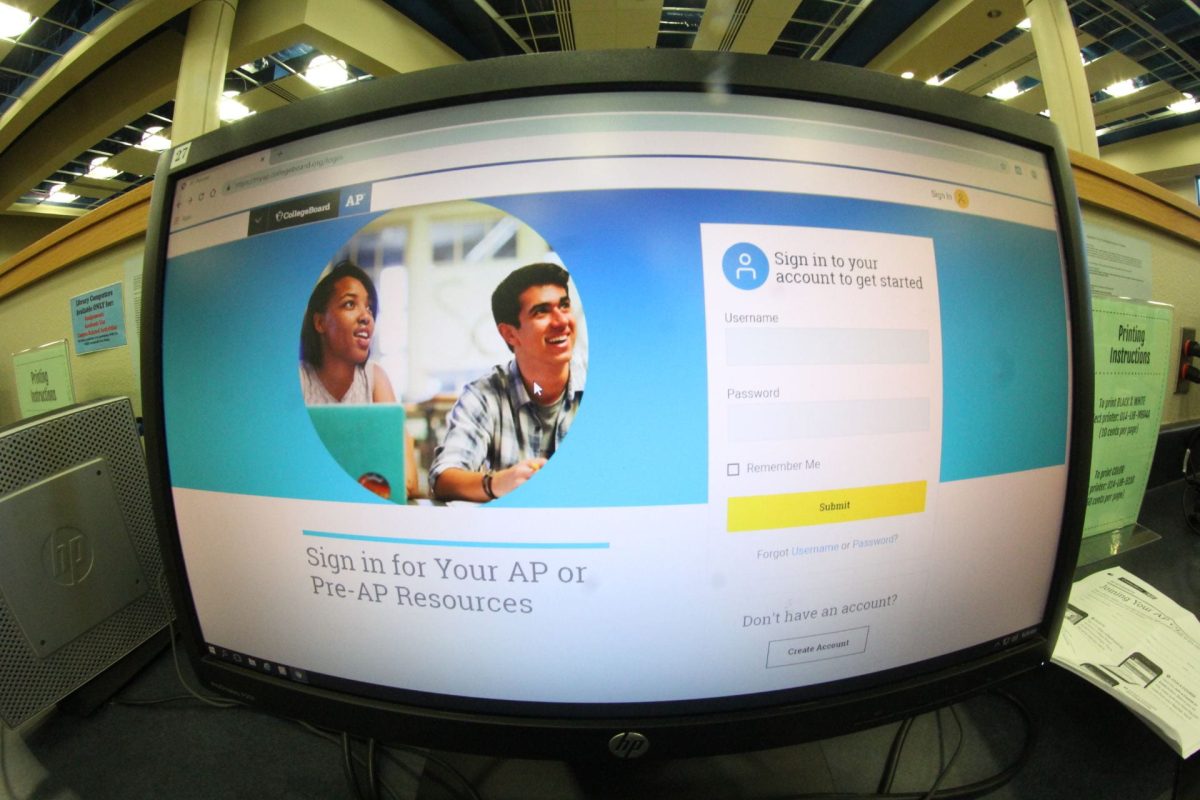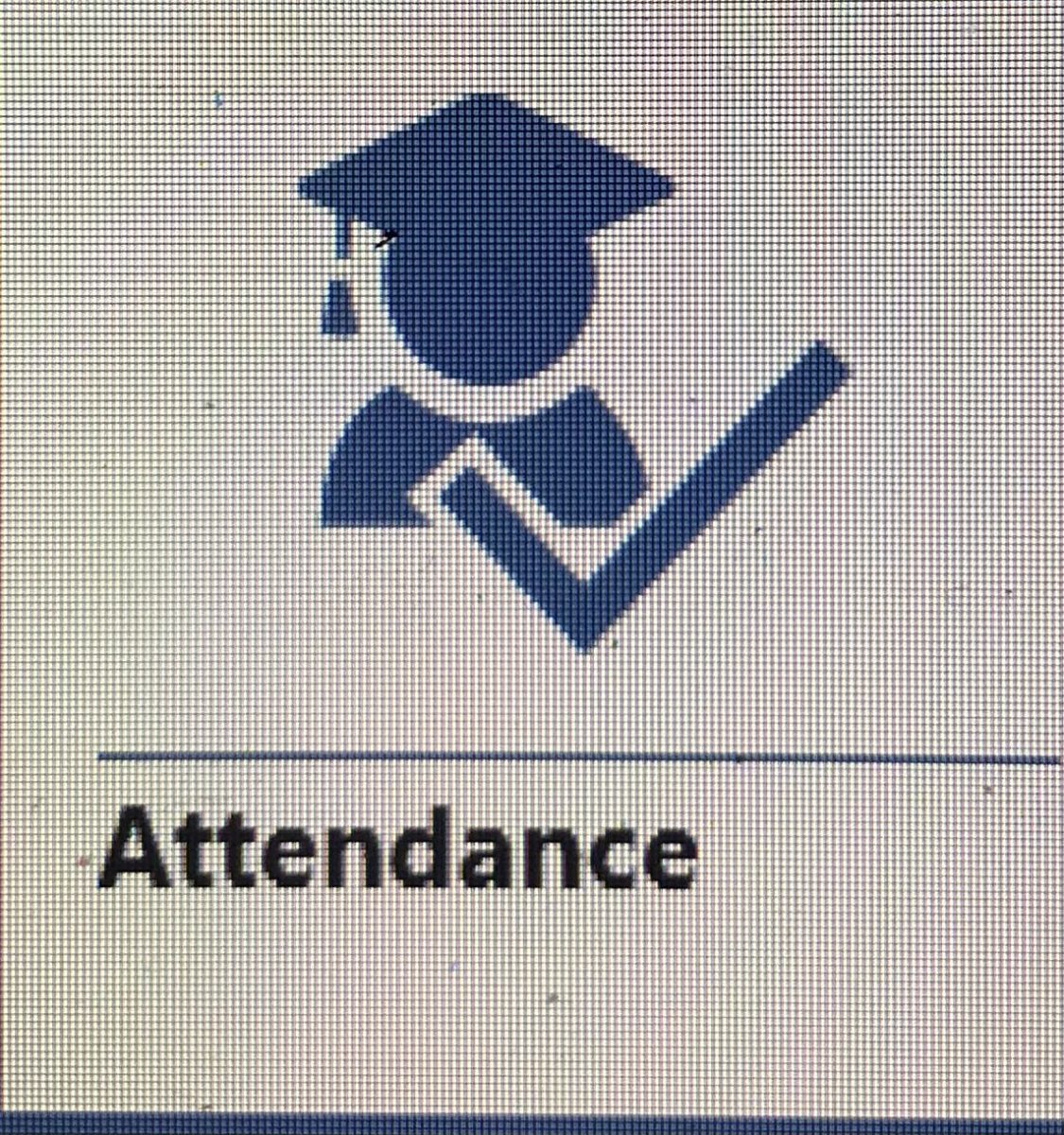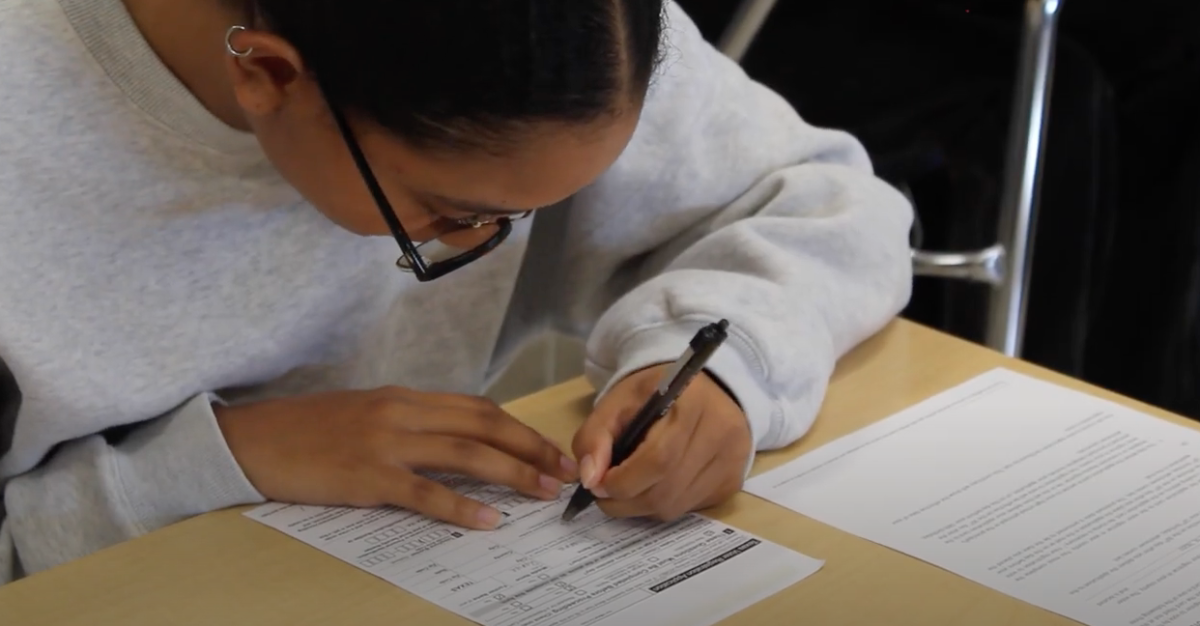Emma Fischer|feature editor
The new milk, fence and cafeteria tables haven’t been the only changes made to Johnson High School. AP testing registration is no longer in the spring; it’s just around the corner.
“Students can register between any time between now and the end of September, which is the 27 with their teacher,” Mary Solis Martinez, AP Coordinator and Counselor said. “If for some reason they have not registered for the course by that time, then they will need to see me after that point. They will not be able to register through their teacher anymore because the teacher will not have the rights to do that. After the deadline, the students will have to come to me. They will have until october the 24 to pay. They basically have all of September and October to register through me or their teacher and for them to pay for the the exam.”
This year, students can register for the AP test through their teacher and don’t have to go to Martinez to register and pay for the test, however, students that are not in AP classes must go through the AP coordinator to sign up to take the test in May.
“Any student that’s taking an AP or Dual Credit course can register for the AP exam, but also any student that is interested in taking the AP exam, even if they haven’t taken the AP course. If the student is not in the course, they must come to me, as the coordinator to register for the exam,” Martinez said. “With the new system, the students that are not in the course do not get the supports that the students that are in the course do. The only thing that I can offer is to register them. They would have to go online and look on college board dot com to look for any resources on their own.”
Registration is now done through a program called “College Board.”
“The biggest change this year is the registration process. Our registration process is now done by teachers and students. The students are given by their AP teacher a join code. The join code allows the student to join the classroom for everyday support but it also allows the student the register for the AP exam. With the teacher’s help, the students will actually register themselves for the AP exam instead of the coordinator registering the students or them directly coming to me,” Martinez said.
Dual Credit students are not in the same position to take the AP test.
“AP testing is for students who want college credit. It is course they take as a college course and at the end of the course, they can take the AP exam around May. If they get a qualifying score, which is usually a three or above, they can learn up to eight college hours of credit,” Oscar Velasquez AP/Dual Credit Biology teacher said.
Velasquez still gives out join codes to his students for College Board.
“I’m in a trickier boat, because my class is also Dual Credit so I have students that are Dual Credit, which means that they already get that eight hours of college credit as long as they pass my class with a B or better. I still recommend taking the AP exam if they plan on going out of state. Some community college credit transfer only to in-state schools. If they wanted to go to Harvard of Yale or the west coast, the AP exam is something universal that can be carried to any university,” Velasquez said.
Registration and resources have been the only changes made by the College Board on AP exams. The tests will still be taken in the spring, but students won’t have until the spring to commit to them.
“The exams are in May, the same time. The students can look online at the new calendar for the 2020 AP testing season, and they will be done after the two weeks of May,” Martinez said. “The exams are about four hours long. The most a student will take is two per day. If a student has a conflict, like two exams that are scheduled for the exact same time period, then they can participate in late testing.”
Like previous years, the passing scores haven’t changed.
“[Scores] really depend on the percentage of correct answers and it is also important to remember that if a student scores a three, four or a five, it is up to the university to decide whether they will use that course or credit at that particular school. They have passed under AP standards and students can then forward those results to their interested university and college. It is important to remember that it is up the school whether they will take the credit,” Martinez said.
The school offers many AP exams, from French, to US History. Students can take as many as they pay for and are willing to prepare for.
“At this school, I think they offer almost every AP exam. For two weeks, there is an AP exam going on, and sometimes there are multiple going on. Some students overload themselves. I tell my students, ‘hey, sign up for three or four,’ but some students sign up for six or seven AP exams,” Velasquez said.
Some classes are only offered semesters, not a full year. To sign up for these semester classes’ AP test, students will have to register in the semester that they are taking the class. If an AP Government class is being taken in the spring, the student will sign up to take the test in the spring.
“One other thing I would like the students to understand that if they are taking a semester course in the spring, then they will have window to register for those courses in the spring. These are courses like government and economics. Those classes offered in the spring do not have to be registered right now. They will have a window to register in January and February,” Martinez said.
These exams are not free, but students do not pay for the exam in full.
“The actual amount of AP exams are $95, but we don’t charge that amount that to students. The students will normally pay $40 for the exam. If they are on free or reduced lunch, then it would be half of that, so $20,” Martinez said. “If a student registers for the exam, pays for it and then changes their mind and wants to not take the exam, even though they are registered for the exam, there will be a penalty fee of $40.”
If a student cannot make a test because of an emergency, there are exceptions made by the College Board.
“If there is something that happens then the students needs to contact me and I can determine if they do pay the fee. There are some reasons and circumstances where the student doesn’t have to pay the penalty fee. College Board has designated circumstances that don’t require the student to pay the penalty fee,” Martinez said. “If there is a situation where they have a conflict, or they are ill or some emergency occurs, then they can let me know about it. We can test them late, or what we call the “Late Testing Week” of AP testing. This would follow the first two weeks of the initial testing. This would usually be the third week of May. Students break fingers of someone gets ill or something else, then they can participate in late testing.”
Although AP testing is something students stress for, it can ultimately help them in the long run, even if they don’t pass.
“I do recommend that students participate in the AP process because it is very similar for what a college exam and a college course will be like. It is very good preparation,” Martinez said.














